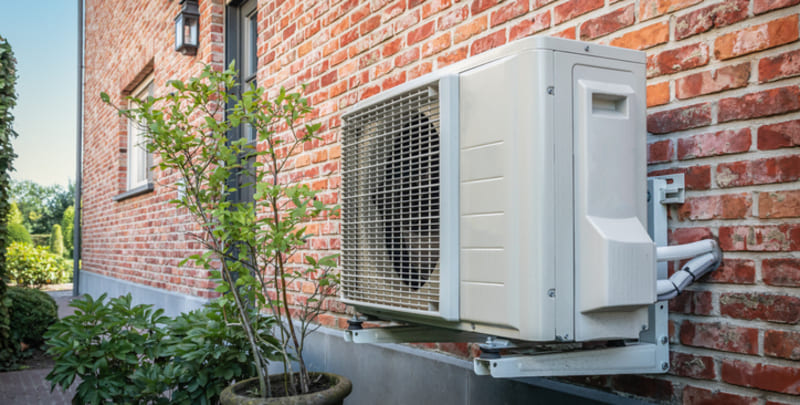Gas vs Electric Heating: What is Better for Your Home?

Choosing the right heating system for your home is a decision that significantly impacts comfort, energy bills, and environmental sustainability.
As the seasons change, homeowners often find themselves at a crossroads between two primary options: gas and electric heating. In this exploration, we’ll delve into the key considerations, including cost, efficiency, and environmental impact, guiding you towards an informed decision that aligns with your unique needs.
Explanation of How Gas Heating Systems Work
Gas heating systems, including furnaces and boilers, burn natural gas to generate heat. Gas furnaces distribute warmth by blowing air over a heat exchanger, while boilers heat a home with hot water or steam. The combustion process releases heat quickly, making gas heating systems efficient in swiftly warming living spaces.
Pros and Cons of Gas Heating
Gas heating systems have advantages and disadvantages that play a crucial role in the decision-making process for homeowners. This brief overview will explore the pros and cons of gas heating, shedding light on key factors that individuals should consider when contemplating this home heating method.
- Advantages: Gas heating boasts several advantages, such as rapid heating and lower operational costs. Gas is often more affordable than electricity, making it an attractive option for minimising ongoing expenses. The efficiency of gas heating systems contributes to their popularity among homeowners.
- Disadvantages: Addressing the drawbacks of gas heating is necessary. The carbon footprint associated with burning natural gas raises environmental concerns. Additionally, the initial installation expenses can be higher compared to electric systems.
Safety Considerations Associated with Gas Heating
Safety is paramount when it comes to gas heating. Adequate ventilation is crucial to prevent the accumulation of harmful gases like carbon monoxide. Regular maintenance and installation of carbon monoxide detectors are essential to safeguard against potential risks.

Explanation of How Electric Heating Systems Work
Electric heating systems use electrical resistance to generate heat, including furnaces, heat pumps, reverse cycle air conditioners and baseboard heaters.
Electric furnaces use heating elements, while heat pumps transfer heat from the air or ground. Baseboard heaters are installed along the baseboards of rooms and rely on convection to circulate warm air.
Pros and Cons of Electric Heating
Electric heating systems, like gas heating, have advantages and disadvantages. Here’s a brief look at the pros and cons.
- Advantages: Electric heating systems generally have lower installation costs, making them an attractive option for budget-conscious homeowners. When powered by renewable energy sources, these are also considered environmentally friendly.
- Disadvantages: On the downside, electric heating can lead to higher operational costs, particularly in regions with expensive electricity rates. The reliance on electricity also poses environmental concerns if the energy source is non-renewable.
Safety Considerations Associated with Electric Heating
Safety measures for electric heating systems include regular inspection of wiring to prevent fire hazards. Additionally, managing energy consumption and avoiding overloads is crucial to ensure the safe operation of electric heating appliances.
Environmental Impact
Exploring the most suitable heating option for your home involves considering various factors, with a crucial aspect being the environmental impact.
In this brief exploration, we compare the environmental implications of gas and electric heating systems to help you make an informed decision that aligns with your comfort needs and ecological values.
Assessment of the Environmental Impact of Gas Heating
How much of an impact does gas heating have on the environment? Let’s take a brief look:
- Carbon emissions and climate change considerations: Burning natural gas releases carbon dioxide, contributing to climate change. Understanding the ecological implications involves considering the efficiency of gas systems and exploring cleaner alternatives, such as bio-methane.
- Availability of clean gas alternatives: Exploring cleaner alternatives, like bio-methane or synthetic natural gas, can mitigate the environmental impact of gas heating. These alternatives offer a more sustainable option for those concerned about reducing their carbon footprint.
Assessment of the Environmental Impact of Electric Heating
What are the long-term effects of electric heating on the environment. Is it preferable to gas heating?
- Energy source considerations (renewable vs non-renewable): The environmental impact of electric heating depends on the energy source. Electric systems powered by renewable energy, such as solar or wind, are more environmentally friendly than those relying on non-renewable sources like coal or natural gas.
- Overall carbon footprint comparison: A comprehensive comparison considers the overall carbon footprint of each heating option, factoring in production, distribution, and consumption. Understanding the lifecycle emissions helps make an informed decision based on environmental considerations.

Energy Efficiency
This is the comparison of energy efficiency between gas and electric heating systems:
- AFUE ratings for gas systems: Annual Fuel Utilisation Efficiency (AFUE) ratings measure the efficiency of gas heating systems. Understanding these ratings provides insight into how much energy is converted into heat, influencing overall efficiency.
- COP and HSPF ratings for electric systems: Co-efficient of Performance (COP) and Heating Seasonal Performance Factor (HSPF) ratings are crucial for assessing the efficiency of electric heating systems. Higher ratings indicate better efficiency in converting electrical energy into heat.
Choose Which is Right for Your Home
Choosing between gas and electric heating involves carefully considering various factors. Understanding your home’s specific needs and your personal preferences is essential. Climate, local energy prices, and your commitment to environmental sustainability should guide your decision-making process.
If you need assistance and guidance for your space heaters at home, contact your reliable professionals and experts for help immediately. Ultimately, there is no one-size-fits-all answer.
If environmental impact is a top priority, electric heating powered by renewable energy sources may be the ideal choice. It’s crucial to weigh the pros and cons carefully and decide to align with your unique circumstances and values.
Please note: This information is provided for advice purposes only. Regulations differ from state to state, so please consult your local authorities or an industry professional before proceeding with any work. See our Terms & Conditions here.